How Black Trans Women Are Redefining Beauty Standards
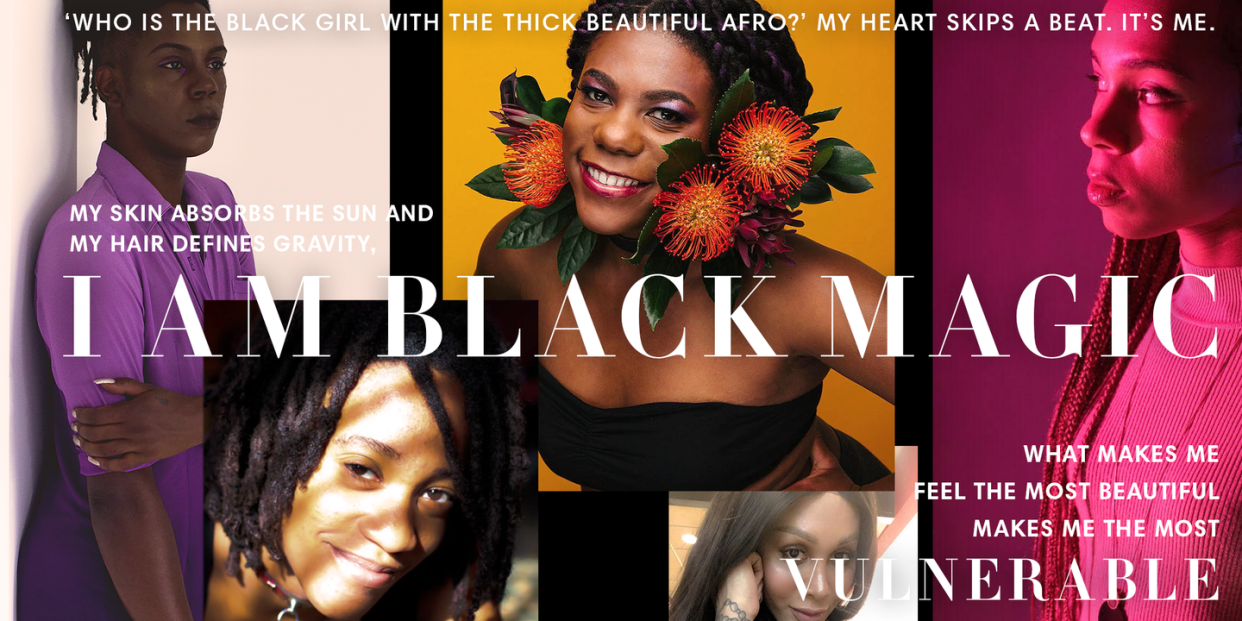
To be deemed pretty in the transgender community means looking as cisgender as possible. Much like cisgender women, trans women are expected to cater to conventional standards of physical beauty; they're asked to be feminine and soft-to be able to blend in. The message being conveyed: exist as little as possible.
Pretty privilege and passing privilege are terms that most trans women are aware of. But when you are a black transgender woman, the conversation doesn’t end there. For centuries, ideals of beauty have been centered around eurocentricity, and anyone who doesn’t fit is deemed unattractive (it is one of the many reasons black women started the Black is Beautiful cultural movement back in the 1960s). But it's a different story when, even if your blackness is considered beautiful, your gender identity is not. To be black and transgender, to exist in both of these spaces at the same time, means not only being constantly gawked at, but also being put in dangerous situations every day of your life.
In 2015, Laverne Cox launched #TransIsBeautiful in an effort to enable trans women to embrace all parts of themselves. Today, to enter a new phase where the trans community is no longer mistreated, we must focus on redefining how beauty is perceived while also allowing trans women the agency to express themselves however they choose. In a quest to redefine this narrative, seven black transgender women and femmes open up to BAZAAR.com about their own perceptions of beauty.
Gabrielle Bellot

Sometimes beauty is hard. Beauty standards feel unattainable for many cisgender women if they desire them; for trans women, it can be even more difficult. You still own no swimsuit because despite your comfort with your body in bedrooms and in stores, you still fear revealing too much of yourself to strangers, lest they realize what you are. You feel slightly on edge when you undress in changing rooms that have slats on their doors or curtains that doesn't seem to fully conceal you, if you have to take off your pants, skirt or dress.
You hesitate to touch up your makeup or check your hair in a public restroom even if the other woman beside you is doing the same because you don’t want someone to stare at you too long, lest they, despite your pass-ability, realize what you are and yell. Before you reach the mirror, you make sure that when you sit down in a bathroom stall, something covers your nether regions, lest someone sees you through the slim gaps along the door, or if, as once happened, your door suddenly opens because didn't close it properly, and two women are staring at you.
"You hesitate to touch up your makeup in a public restroom because you don’t want someone to stare at you too long"
You feel visible because of your beauty, which sometimes makes you feel validated, but that visibility means you are viewed, and you feel nervous when a male police officer looks at you from toe to head, and your skin becomes the things he seems to be lusting after, lusting to press you against a car with or without handcuffs, and then you fear what he might do when he realizes you are transgender, the way black trans women are blamed for presenting as women.
You feel that not being white makes some white men fetishize you even more than they already would trans women, who exist in their minds as creatures on porn sites; you are now, as white strangers sometimes call you, a lecherous bro-grin, “exotic,” and you feel in their energy that they want to pursue you; men of color, too, pursue you, and there is sometimes an old colonialist colorism in their gaze: the idea that they like you because you are light-skinned, have hair that falls downward more easily, that they would like you less if you were darker because we so internalize the darkness of our skin as a form of guilt.
You want to look gorgeous on some days, plain and in pajamas on others, but then men harass you either way, and you always feel a sea-like pressure in your head because you know that many of these men have also internalized violence and homophobia, and if they learn you are trans, they will call you names and even attack you, even go to court after you are dead, and say, in the tellingly named “trans panic” defense, that they freaked out and killed you because they couldn’t stand that you were not cisgender.
You feel you must over-perform stereotypes of feminine beauty to please certain women; others will say your performance proves you have no idea what a woman is and are relying on patriarchal stereotypes; you learn to say, “screw you, I will be whatever I want to be, like you.” Although, you still feel hurt that you can’t just be accepted without these fights.
"You want to look gorgeous on some days, plain and in pajamas on others, but then men harass you either way"
You feel traces of stubble on your chin and above your lip that have not left, even after nearly 20 sessions of laser hair removal that left your face red for hours after, and although you now rarely have to shave and can “pass” without makeup, you feel less able to live up to the smooth-faced standard of beauty gurus and commercials on YouTube by Bobbi Brown, Tarte and Tom Ford.
You love believing in your beauty, learning to love yourself so that others can love you, in turn-but you realize, many days, that you still have a long way to go.
Vanessa Clark

I’m a black, gender non-conforming transgender femme person, and the truth is, I do care [about beauty]. Even when I was young, I couldn’t help but wonder, why does my safety, survival and dignity hinge on my looks, my body and whether I truly pass as a woman?
When most of your gender identity revolves around whether you’re pretty enough, or whether or not you pass enough, or if you’re even trans enough, it's impossible not to care. Though not as much on the outside, inside that “ugly duckling” is still there because I want to be beautiful. But it goes even deeper than that: I want to be seen. Not so much for only my physical beauty, but for the beauty within that all of us have.
"Why does my safety, survival, and dignity hinge on my looks?"
It’s more than tiresome. It’s dehumanizing when the most cherished beauty standard of all, self-love, is not enough-that being yourself isn’t enough. That even when you’re comfortable as your trans femme self, you’re defined by not only how you look, but who you look like.
Not all of us are statuesque and glamorous. We can’t all be supermodels. Some of us are short and average. Not all of us are confident, sometimes we can even be painfully insecure and broken. But beauty for me is how you define it on your own terms. The clothes, makeup and shoes may be the statement (there is a lot of power in them), but they don’t define you, nor does the world’s perception of how they see your beauty.
Being trans is more than physical, and it’s not about looks. Even being femme is more than that. It’s being a fighter, a lover, and ultimately, a survivor. Even that “ugly duckling” is just that, if not something more.
Dahlia St. Knives
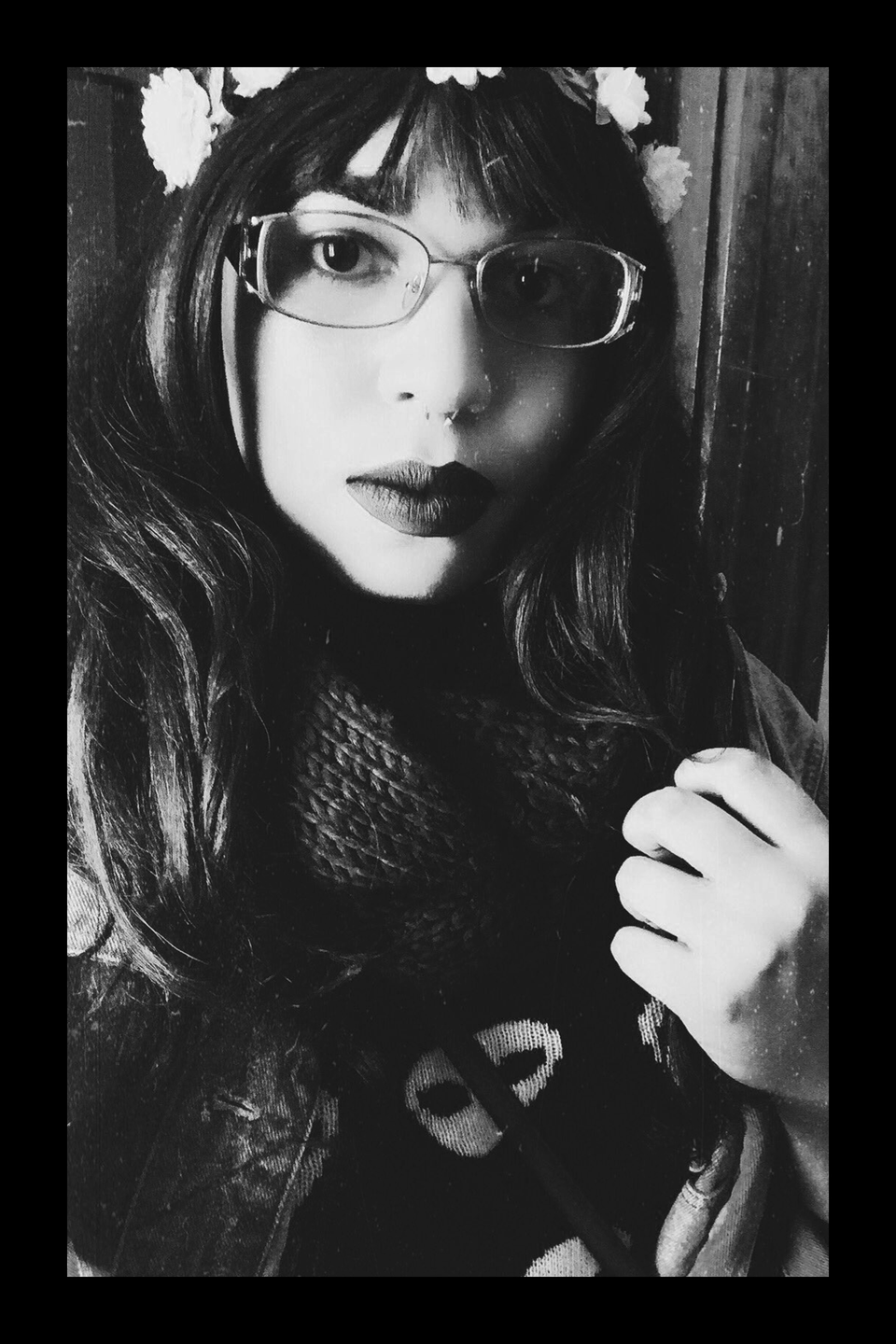
Beauty, to me, has always felt like something close enough to lightly graze, but not near enough to firmly grasp. Before I transitioned, I was gangly, comically awkward, had really bad skin and absolutely no self-confidence. Today, after more than two years of hormone therapy, I am the complete opposite: sure-footed, graceful and attractive. Yet, I am still on the outside looking in when it comes to beauty.
Being a black trans woman, my beauty is enough to earn me fetishisation as an exotic object, but never true and honest appreciation. I am considered by the world to be the least desirable type of person I could possibly be. In my ideal world, my beauty would be cherished on the same level that a cisgender white woman’s would, without any conditions or asterisks.
Jayy Dodd
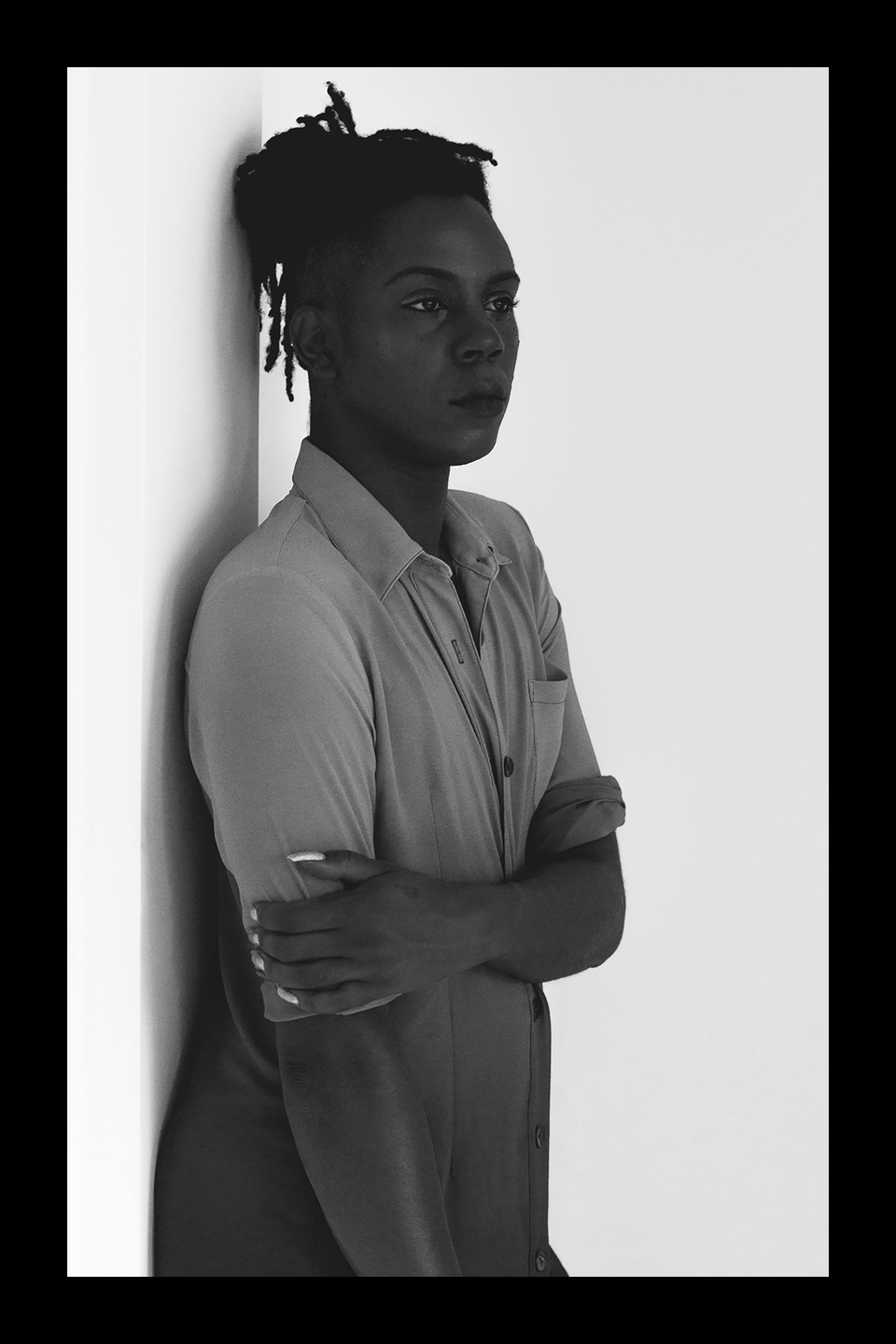
Beauty, or the attempt to codify it in myself as a black femme, begins with a belief in something greater than this world. To create beauty means manifesting the unseen. It takes vision, execution, and most importantly, patience with oneself. The ritual of beauty-be it for the face, or dress or conversation-is an art in seeing beyond the present. It’s the attention to the structures that obscure this world and reframing them as divine.
Practically, I think of the cost of beauty as a misogynistic symptom of capitalism in the economy of masculinity. I think how trans black women and femmes of all genders are denied kinds of beauty simply because of demeanor or drag. I think of how what makes me feel the most beautiful makes me the most vulnerable in public. But as a true romantic, I will die for it.
"What makes me feel the most beautiful makes me the most vulnerable in public"
Kuchenga Cheng
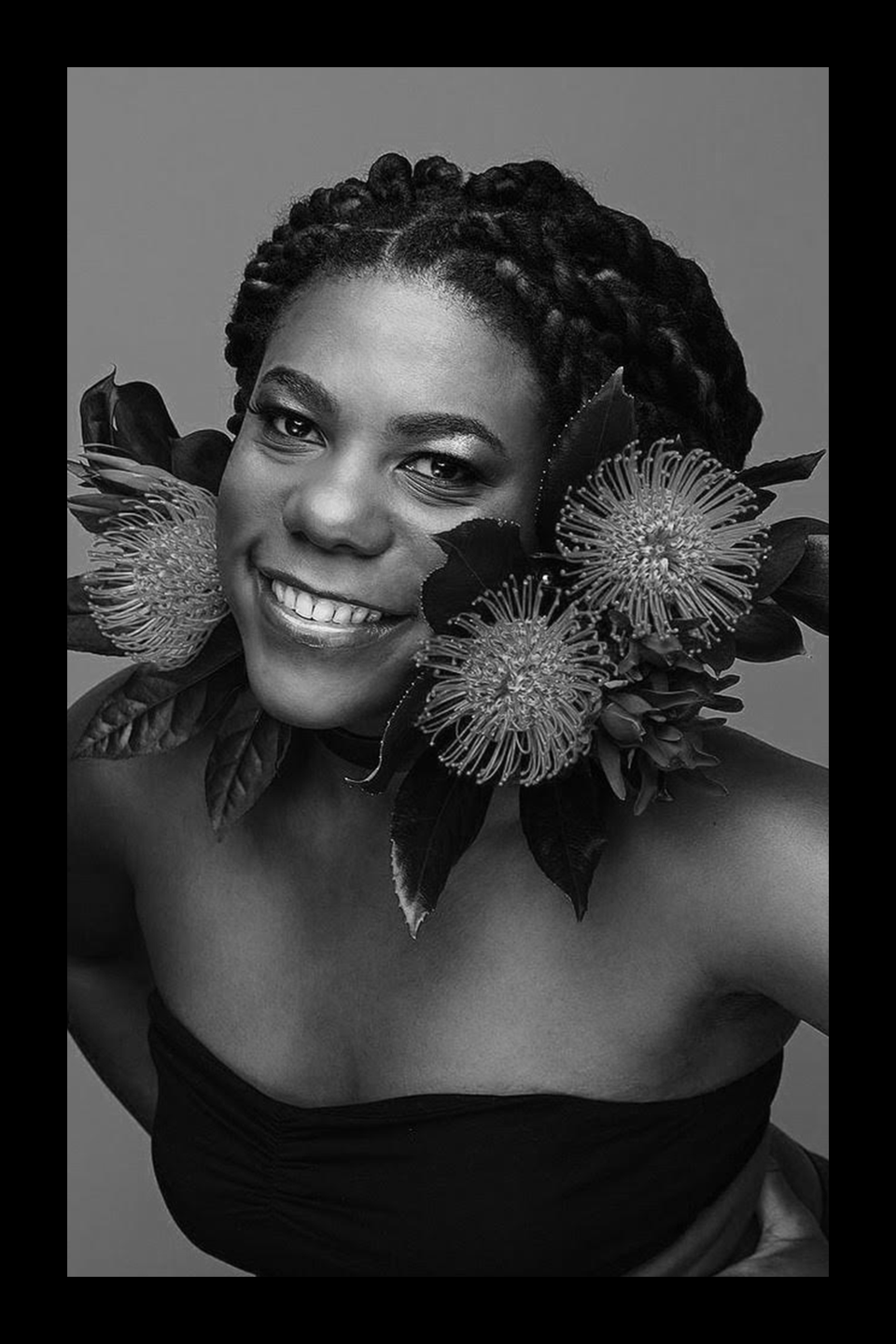
Last Christmas I gave all my wigs away. My girlfriends were the recipients of my high quality human hair that YouTuber ‘ULOVEMEGZ’ refers to as personality units.
The Brazilian long blonde bob I got after taking yet another picture of Beyoncé into the salon. The Mongolian springy bouncy curls that fluttered in the wind when I cycled through town and made sure to toss with insouciance when I stopped at traffic lights lightly panting. Girls! We had some moments.
"Who is the black girl with the thick beautiful afro? My heart skips a beat-it’s me"
The wigs, along with the intricate cornrows and braids, formed part of a protective styling rotation which cocooned my gorgeously boisterous 4c texture hair. My mother is passing away from Alzheimer’s. A tragically protracted goodbye as she transitions from this life to the next. There is a special picture of us in the back garden of our house in Harare, Zimbabwe around 1987. She is bathing me in a plastic bath as the sunlight pours down. Her Marsha Hunt afro casts a shadow behind us. As my medical transition marches on to a drum beat dictated by my soul, it means so much to me that I now look like her in this photo.
In this post-Black Panther era, I am grateful that I am joining Janet Mock in redefining realness. Walking past a store window my mind asks, “Who is the bodacious juicy dark skinned black girl with the thick beautiful afro?” My heart skips a beat. It’s me.
Carlisha Brown

I remember the moment I said, “enough.” When my choice was my truth and my truth was no longer a choice. Every time I think of it I can feel the stillness in the room that night, which was the beginning of the rest of my life. The choice, that decision, who makes the decision to be an outcast? Who makes the choice to live such an isolated life that’s like a block of pain? But through ferocious courage you carve out your excellence, by your definition.
That ferociousness curated the Queen I am today, however society has a way of derailing you from finding your excellence. F*ck you, society, I was always excellent. I’ve gone through many expressions, stood on many of soapboxes, tried to adapt to many forced definitions. However, I learned if someone's trying to tell me how I need to be-then this person doesn’t know me at all.
My skin absorbs the sun and my hair defines gravity, I am black magic.
My name is Carlisha Gizelle Brown and I am an unapologetic trans woman of color. This transition was at first physical, but the true exploration of beauty came when the transition began within. Once I found the excellence in being a black woman, I found my voice. I love my skin the most in the summer; I feel my freest when my hair is untamed. My skin absorbs the sun and my hair defines gravity, I am black magic. I read somewhere that six protons, six neutrons and six electrons make up melanin, but according to Christianity it’s the mark of the beast. Yeah, I got your beast, I have lived a life too long being told how to define who I am, how to express who I am.
I am excellence and having an Italian mother will never take that from me. My whole life I was fooled to think that I was special because my mother was white, when the reality was I won because my father was black!
Eva Reign
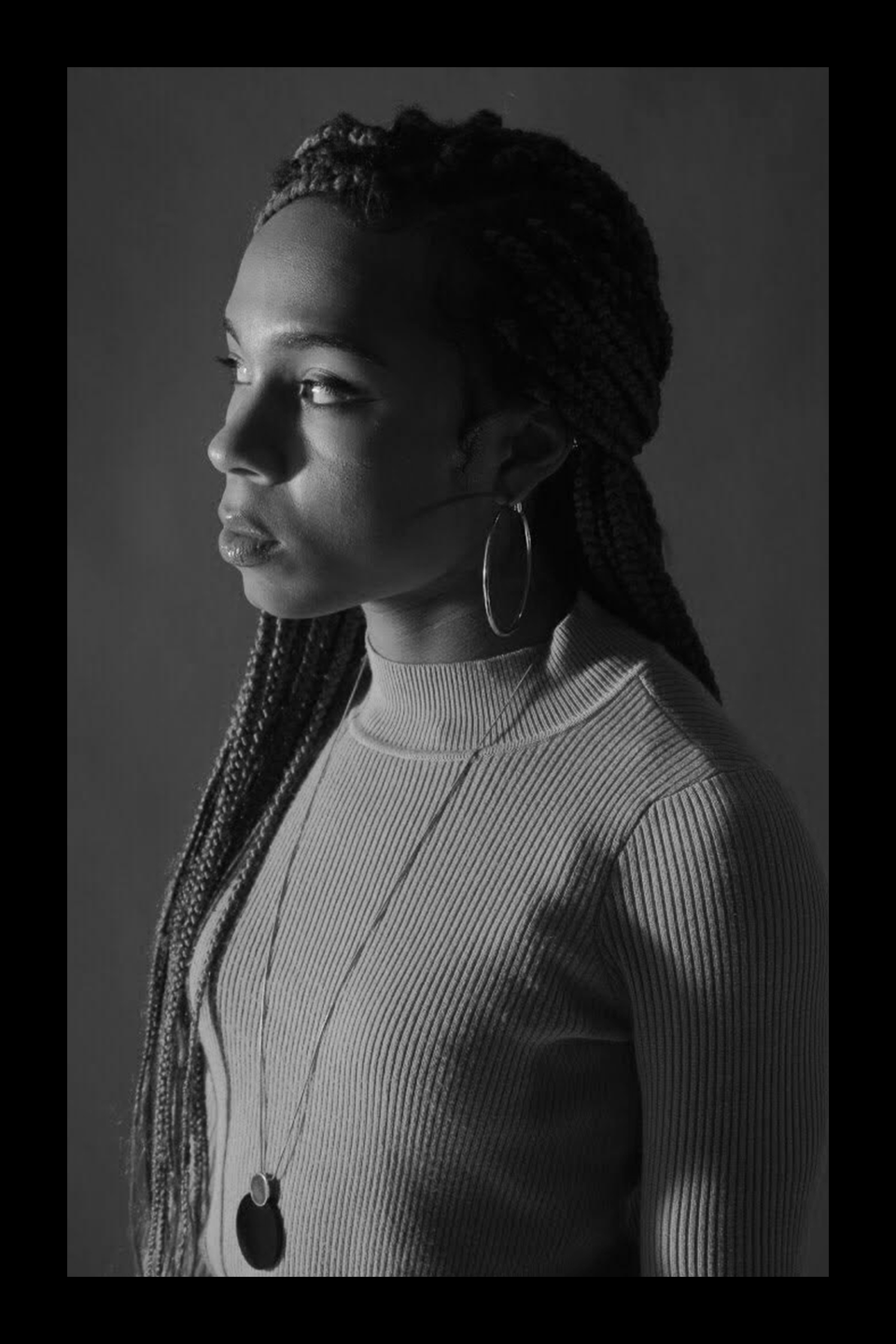
Transitioning has been a fulfilling experience in more way than one. I look in the mirror and see someone I actually recognize. I see myself. I appreciate my body more than ever, and I work hard to care for it as I’m beginning my journey.
I struggle to alway see myself as beautiful because I too often view myself through the lens of cisnormativity. It’s a daily struggle, but with some mascara and Fenty Beauty Trophy Wife highlight, I feel content enough within myself to keep going.
You Might Also Like


